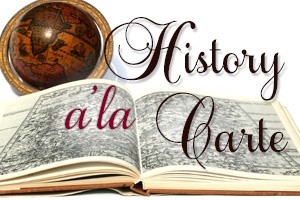History a’la Carte: Courtship, Wedding and Marriage

A buffet of history articles on courtship, marriage and weddings for your reading pleasure.
Click the titles to go to the articles.
Courtship and Marriage Superstitions in the 1700 and 1800’s
Eighteenth and nineteenth century couples had to navigate through an extraordinary number of peculiar customs and fanciful superstitions when it came to courtship and marriage. Among these superstitions was the belief that “a piece of wedding-cake placed under the pillow [would] produce a dream of a future husband or wife.”[1] In the Irish Sea, on the Isle of Man, no groom or bride dared visit the wedding altar without a pinch of salt in their pocket. In England it was different. English bridegrooms were encouraged to carry a miniature horseshoe in their pocket to enjoy good luck forever. However, there were many other courtship and marriage superstitions
Eighteenth-century Wedding Cakes
As it’s Valentine’s day we thought we would have a romantic post, however, this has become a confusing one instead and one for which we don’t as yet has a conclusive answer. Everywhere we have looked to find out more about tiered wedding cakes or bride cake as it was previously called, there appear to be two different accounts as to who the cook was that originated it.
Henry VIII’s Marital Troubles may have Influenced Other Splits
The extraordinary story of a teenager who flip-flopped between two wives in a similar way – and at the same time – as the monarch was trying to change his spouse suggests other couples were watching and being influenced by the impact the King’s case had on the law.
A Marriage in Medieval London
On January 15, 1472, in the case of Elizabeth Isaak versus John Bolde (Elizabeth was suing John), the deposed witness was Elizabeth’s brother, Walter Isaak. Presumably, John was disputing the validity of the marriage, as Walter’s testimony is mainly concerned with the couple speaking and acting like a married couple. Although it’s tricky to be sure we’re hearing what we think we’re hearing (scribes translated most testimony from the English they heard into Latin later, so there is huge potential for human error in translation), if we read between the lines of Walter’s testimony, we can see him as what he is very likely to have been: a little brother eager to defend his sister by being as precise and helpful a witness as possible.
How Romantic was an Elopement
The romance and drama of an elopement is a popular theme in the historical love story, but it must have been an uncomfortable and expensive procedure, even without the risk of the rope ladder giving way and tumbling the young lady to the ground, or the furious father giving chase with his shotgun or horsewhip to chastise the bridegroom to within an inch of his life.

Thank you for sharing all your research with us. Happy Valentine’s Day. Stay safe, everyone.
Courtship and marriage sounds a bit tedious. Elopement sounds interesting, but if it were so expensive, why did Wickham drag Lydia?